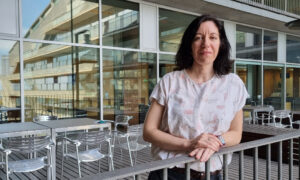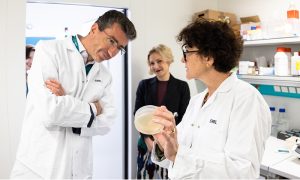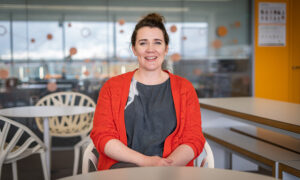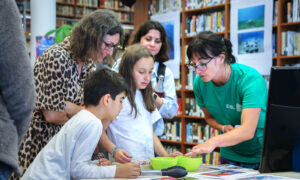
Welcome: Moritz Gerstung
Why do patients with the same cancer exhibit different constellations of genetic mutations – and how does that affect their fates? New group leader Moritz Gerstung aims to find out.
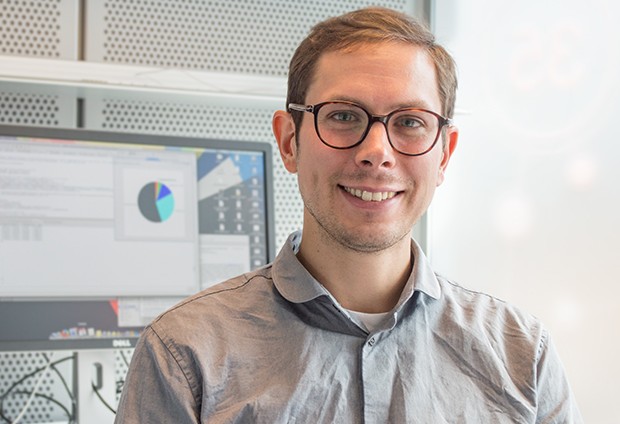
I hope that our research starts to fill in some of the blanks between molecular diagnostics and treatment decisions.
Where do you come from?
I come from Marburg, a small town in Germany infamous for the Marburg virus.
What do you think are the best things about science and technology in your adopted country?
When I got into genomics all of the main references were coming from the Genome Campus in the UK, which is the hub for biological data streams. It’s great to be at the heart of it.
What are your technical and/or scientific interests?
I originally trained as a physicist but realised I was on a well-treaded path where all the great discoveries seemed already to have been made. One of my professors was applying his physics knowledge to biological problems, and this opened up a whole new world to me – where you can apply quantitative mathematics to get a more precise idea of what is going on. If you really want to see what’s happening in a biological system you have to quantify it, use statistical methodology to separate the signal from the noise – and that’s how I approach cancer research.
What will your group be focussing on?
My group will be trying to gain a quantitative understanding of cancer by leveraging large cohorts of patients to identify the unifying factors. The combination of mutations exhibited by each person, even people with the same cancer, are so very different that you need to look at many patients to find out what they have in common and how these different constellations affect their outcomes.
What is your work philosophy that you would like to share with your team?
If you mean a career philosophy, I would say: “Enjoy what you’re doing and do what you enjoy”. But in terms of why we’re doing this work in the first place, I think it’s really important to focus on translating what we do into useful information for clinicians who need to find the best possible treatment for their patients. We already have enough knowledge to inform clinical decisions much, much better, but guidelines tend to be simplistic and often lag behind current knowledge.
How do you see your group growing over the next year or so?
I certainly hope that it will grow a good deal! I’m currently recruiting postdocs, one of which will report to both myself and Rebecca Fitzgerald at the NIHR Biomedical Research Centre and MRC.
Name one tool you can’t do without.
Eclipse. It’s the Swiss army knife of programming tools – it can do just about anything. But realistically, I think it will compete with Mail in future…
What is the best advice you have received in your career?
I once asked Mike Stratton for advice about an okay job offer I’d received. He simply looked at me and said, “Is that the best deal you could ever imagine?” He encouraged me to hold out for the best, and that meant a lot. I refused the okay offer and went for an ideal offer at EMBL a year later – and here I am!
What advice would you give someone starting out in your field of work?
Have bold ideas and don’t do what everyone else does. And don’t be disheartened by reviewers’ comments. It’s their task to check your work for weaknesses, even if their approach may seem superficial after all your years of hard work.
What impact would you like your work to have on research?
Cancer is such a common and complex disease, and if people are going to have the best treatment we need to provide a much stronger basis for rational decision-making. There is a huge gap between discoveries and applications, and for cancer in particular the standard of care tends to be one-size-fits-all. We can do better, but how, exactly? How can we expect people to embrace the complexity of cancer when there are so many concurrent features to look at?
I hope that our research starts to fill in some of the blanks between molecular diagnostics and treatment decisions. I also think that we have to think about new ways of communicating our results to clinicians, for example using interactive web tools. This is challenging, but if we succeed we can make a real difference.
What inspires you?
There is so much to discover out there, you just need to approach it with open eyes and ask the right questions.
